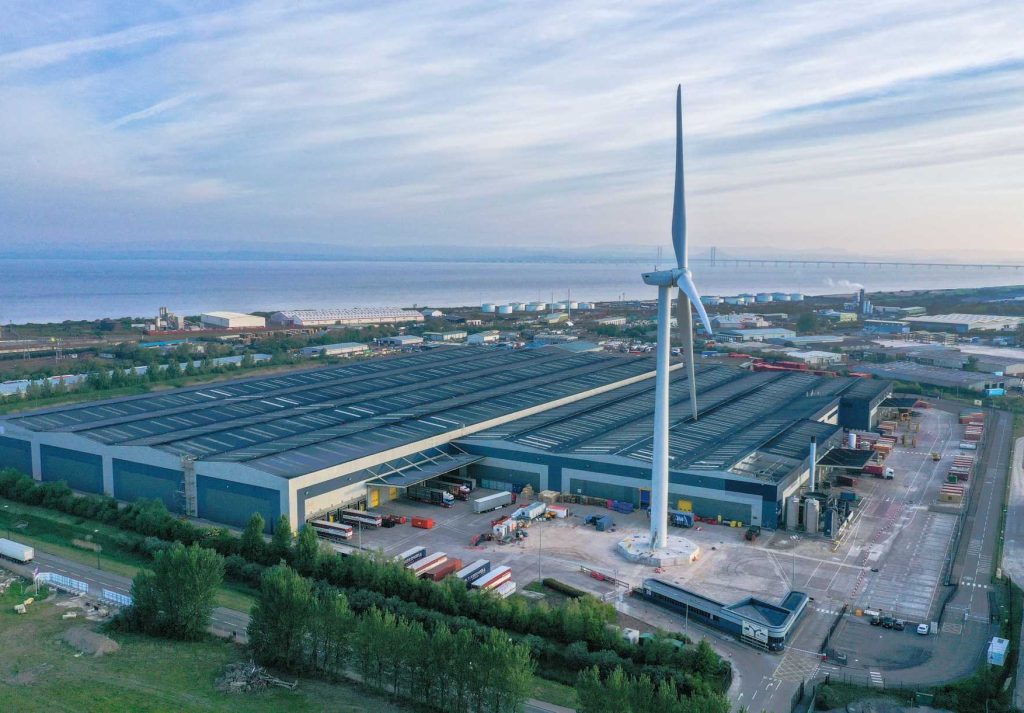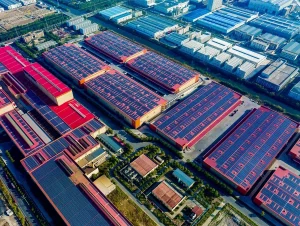
The road to sustainability in industry was never going to be smooth, particularly in sectors such as manufacturing and heavy industry, where operations are traditionally large-scale and carbon intensive. One area that has a particularly bumpy ride is the relationship between ESG interventions and existing commercial objectives – in short, the business case.
Of course, transitioning to a way of doing business that allows our planet to have a viable future is the right thing to do, and this is reason enough to do it, but changes have to be sustainable in every sense of the word – environmentally, operationally, and financially. It’s crucial that ESG measures contribute to wider business goals; if that goal is growth, for example, sustainability projects need to help deliver it, not just work towards siloed emissions targets.
Unfortunately, this relationship is rockier than ever, and ESG measures have been met with backlash in boardrooms. These initiatives are often viewed as more disposable when financial and performance objectives are under pressure. At Encirc Beverages, we’re lucky to have a leadership team backed by the Group Executive Committee and the Board who are all-in on our strategy for a sustainable future (our Vivid Vision), and that’s partly because the changes we’ve already made have brought commercial value in ways that we could never have expected, and created a business case that is broader and stronger than ever.
If we want to rebuild momentum behind ESG in global business, we need to do the business case justice by bringing some of the hidden benefits out into the light; communicate them in a way that makes sense to investors, partners and customers; and keep uncovering new reasons do what’s right for our planet.
Difficult times
The ebb and flow of opinion on ESG isn’t uniform or consistent – some industries and markets will be moving quickly in the right direction, while others stall or even shift into reverse. However, if anyone likes to put a number on something, it’s the financial sector, and a look at sustainability-focused stock funds does act as a barometer of how markets are feeling about ESG on a broad level.
Here, the picture isn’t good – the portfolios of companies leading the way in sustainability and social interventions were some of the markets’ hottest products, pulling in trillions of dollars in investment as people looked to back businesses and funds that they saw as preparing for a greener future. Now, however, these funds are experiencing their first negative year, with more than $40 billion having been withdrawn in 2024.
There are many reasons for this, some of which are founded in the politics of ESG as a concept, particularly in the US. It’s a minefield, but it does link to broader loss of confidence in sustainability measures. Much of the criticism has set ESG initiatives in opposition to traditional business objectives, suggesting that they put reputation over performance.
Difficult measures
These attitudes have yet to have a serious effect in the UK, but we should be aware of their impacts all the same, which have been far from inconsequential. It has led to a rise in ‘greenhushing’, where companies choose not to publish the details of their environmental commitments in fear of being accused of putting them ahead of the bottom line.
Across the Atlantic (and across the Channel), it’s possible to see the impact in a different but equally concerning way. In the EU, which leads the way in ESG regulation and has long been seen as home turf for the practice, there has been growing pushback in certain sectors. The effect of a visible resistance to sustainable policy is watering it down everywhere, in ways that matter for businesses. One example is the European Sustainability Reporting Standards, which has recently been amended in line with a weaker international alternative that won’t be as effective in holding businesses to account on their commitments and actions.
It’s a complex situation, and it’s bigger than any one company’s sustainability commitments, but it does come back to the business case for ESG. We need to shift the narrative back in the other direction, away from the idea that sustainability is bad for business, and instead be more vocal about how it contributes to the traditional business objectives.
Diamonds in the rough
One reason that ESG is coming under more scrutiny is times are tough for a lot of businesses in the wake of the pandemic, and the following geopolitical shocks that led to high inflation and economic stagnation. In this context, when traditional KPIs such as cashflow are under pressure, sustainability and CSR commitments are seen as less essential and are among the first to be questioned when tough decisions need to be made.
However, it’s in precisely these situations that a sustainable business thrives. The 2023 energy crisis is a prime example – it was a perfect storm for an energy-intensive manufacturing sector, and even more so for those relying on gas-powered furnaces to keep operations running. The spike in gas and electricity prices could have been an existential threat, and it was for many smaller businesses.
For Encirc, what made a significant difference was the wind turbine we installed at our Bristol bottling site, The Park, insulating us from some of the impact of energy price hikes. It was an example of the business case for this project making itself heard when we needed it most, and it wasn’t the only one. Encirc is also leading the way in the switch to intermodal transport, embracing rail shipments as much as possible using the railhead at Elton – this keeps a massive amount of freight off the road, and means our operations (and those of our partners) are cushioned from spikes and volatility in energy prices.
We implemented these changes with our eyes principally set on the future, on the next 50 years of the company. But the value of our sustainable pilot projects in shoring up our operations against current shocks to the system demonstrates that the business case is there now, and it will contribute to all the metrics that we have always used to measure the health of our businesses.
It was also a taste of how the climate crisis will begin to affect industry – we’re not headed for instantaneous system collapse where all those that haven’t prepared will cease to exist. Instead, we’re much more likely to see a gradual shrinking of the resource base that puts traditional fuels and ways of working out of reach of businesses without sustainable systems to fall back on. This should be another thing on our minds when we look at the business case for sustainability, but let’s not wait for another perfect storm to learn to dance in the rain.
It pays to be proud
We do need to be more vocal about the real return on investment on ESG projects. However, this doesn’t mean that the less immediately tangible benefits to our brand and our stakeholder relationships are any less important, or that they don’t also deserve their moment in the spotlight. There’s a reason that we, and many of our peers, are still shouting about sustainability projects from the roof tops, and that’s because, whatever the narrative elsewhere, they’re received with universal positivity by our customers, suppliers, and partners. Achieving this buy-in from peers and making opportunities for collaboration is what has allowed us to drive change across our value chain with the confidence that everyone is pulling in the same direction.
It’s a sentiment that’s echoed across our interactions – our customers tell us that their relationships with their biggest customers are built on a shared commitment to establishing a sustainable business model. It’s clear that ‘greenhushing’ doesn’t mean ditching sustainability altogether, and many businesses across every market remain committed, even if they’re saying it in boardrooms rather than on billboards.
This isn’t just about patting one another on the back – how a business sets out its approach to ESG, internally and externally, makes a difference at the biggest moments in its journey. A recent survey by Deloitte found that 99% of businesses measure the impact of an M&A transaction on their ESG profile, and more than 70% have abandoned a potential acquisition over ESG concerns. It’s hard to imagine a more pressing business case for standing by sustainability commitments, even when times get tough.
In it for the long run
Industry has a duty to decarbonise, and that applies to heavy industries such as manufacturing more than most. This shouldn’t come at the expense of business models that are financially and operationally sustainable, and it’s natural that sights are turned on ESG objectives when these vital signs come under threat. But the two aren’t mutually exclusive, and a shakier global economy produces more reasons to futureproof, not fewer.
We’ve seen first-hand at Encirc that the business case for sustainability will keep on giving, in ways that we don’t expect. It’s on us to share these success stories if we want to ward off ESG-related cold feet, because we do need everyone on board to achieve the change necessary.
Partner With Us
The Institute for Sustainability Africa (INŚAF) is an independent multi-disciplinary think tank and research institute founded in Zimbabwe in 2010 with the Vision to advance sustainability initiatives for Africa.




